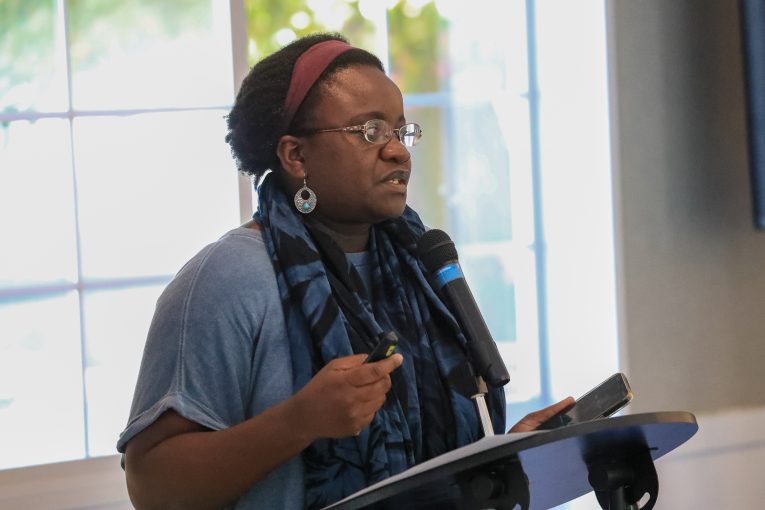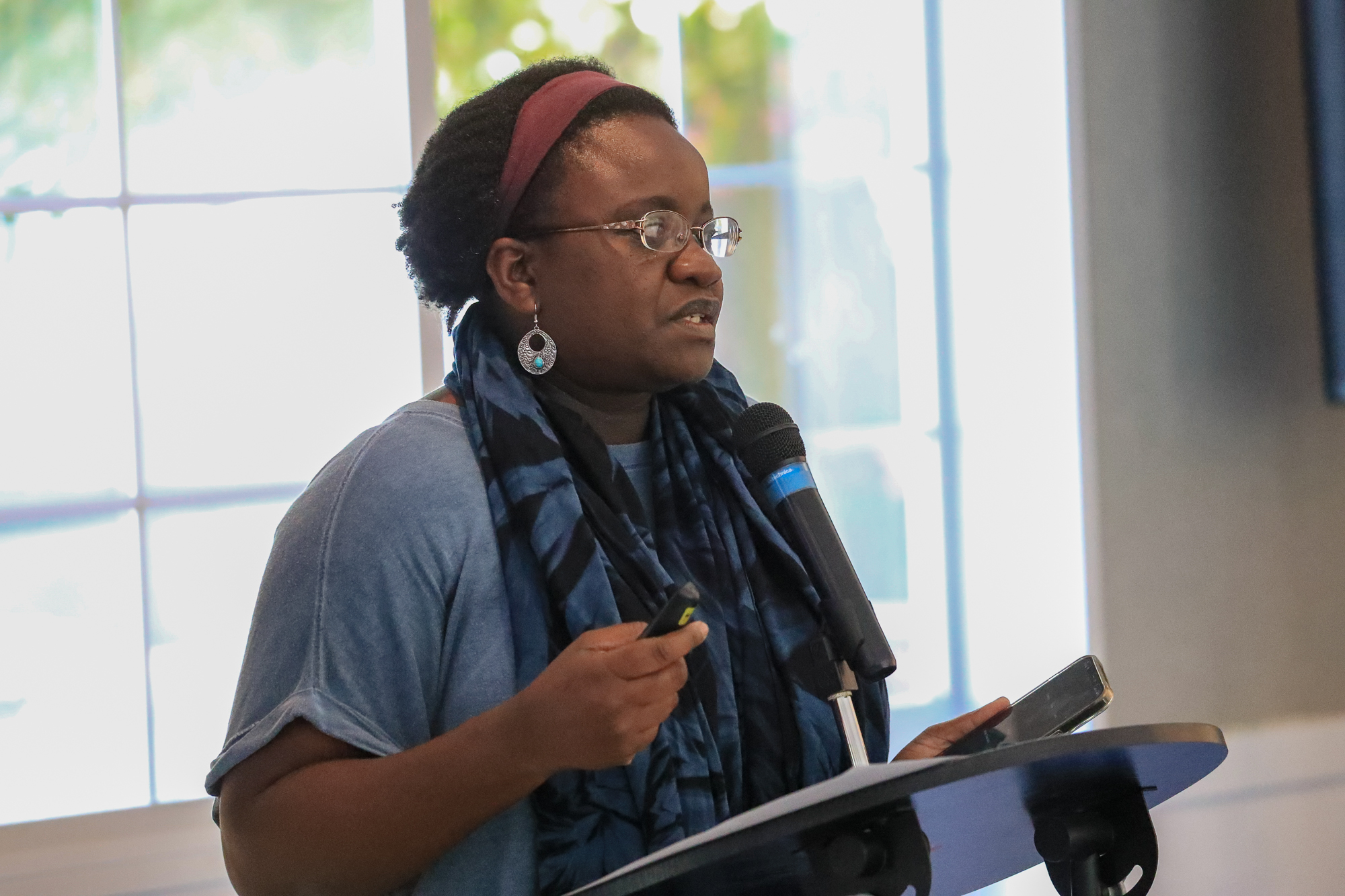

By David M. Greenwald
Executive Editor
Davis, CA – One of the important aspects of the Davis CAN presentations from Sunday was their efforts to tie together a whole host of strands. One of the speakers, NJ Mvondo, who recently joined the Davis CAN board, brings together experience as both Chair of the Human Relations Commission in Davis as well as the Yolo County Climate Action Commission.
“I’m talking about diversity, equity and inclusion today,” she explained. “I’m inviting us to expand our understanding of that expression. Oftentimes it is used to refer to ethnic diversity and sometimes socioeconomic diversity, but I’m challenging us today to think of it as every single voice counts.”
She noted, “DEI (Diversity, Equity, and Inclusion) is you, it’s me, it’s everyone beyond just the people (and) the communities that are marginalized.”
In terms of climate change, she said, “We live in a state of emergency, like we literally right now, are in a state of climate emergency.”
She said, “In order for all of these goals to happen, we need to find a way to not just get together, but to work together in a way that is systematic and that ensures that if one of us has to step down, we are making it easier for people to continue to step in regardless of how old they are, regardless of if they’re rich or poor, and regardless of the socioeconomic and education background.”
This effort goes beyond elected officials and elections.
“Of course, we need our elected officials,” she said. “We have special elections coming up. Our work is not going to be done when we vote. We have elections in 2024. Our work is not going to be done when we vote people in office. We need to remember what they promised. We need to remember the conversations we’ve had with them, and we need to continue to reach out and actually collaborate with the people who are supposed to represent us and to fight for our rights.”
She noted that there is going to be an event organizing team.
“Don’t count yourself short,” NJ Mvondo explained. “Don’t think that you don’t have experience. If you can pour a glass of water, you are an organizer.”
Political access is key, she explained.
“For Davis to be able to have a sustainability manager is because there was a piece of paper that elected officials put together that made it binding, that made all of us as a community, and elected officials accountable to deliver.”
She also mentioned interfaith and social justice groups.
“Let’s reach out to churches and to our Jewish community and beyond,” she said. “Many of those organizations happen to have social justice committees. They care about what’s going on. They want to participate, they want to help.”
She said, “The moment is now. I know we are thinking of our kids. We are thinking of the next generation. We want to leave a world, you know, that’s not going to be messed up for them. The reality is that every decision we are making now, even when we stay silent, that’s something. So when we are not acting, um, in a way that is organized, efficient, you know, when we are not doing something, what happens to the environment?”
Mvondo said that she was mentioning climate and DEI because in her “humble opinion, moving forward, every decision we are making as a community and as a governmental body, we need to be asking ourselves the question, what is the impact on the environment?”
She said, “If we don’t do that, if we don’t have an assessment, what is happening is that if our environment right now is messed up, it impacts our health directly. So it’s not just that tomorrow our kids are not going to be in good shape, it’s just that already in a few weeks, you know, in a few months, uh, we are going to pay for the lack of trust and decision.”
And of course for her, everything is at risk – health is at risk, local economies are at risk.
When we think about sustainability and doing something about climate change, she said, “that intersects with housing and many other issues.”
She concluded, saying, “I’m encouraging us to keep a mindset of collaboration even when we disagree with someone. Let’s think of what is the middle ground?”

